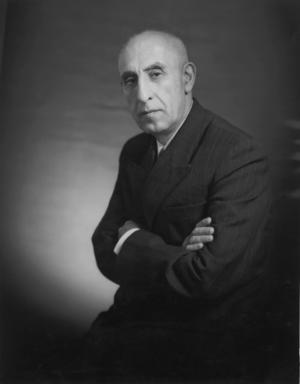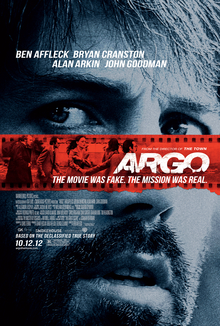Since, the film is about a true political story one of the most important events of 20th century, it is important to see the context in which this story happens. Of-course, this is explained in the film. But the problem is, the film skims through 75 years of history in five minutes and explains a two and a half month period in vivid detail. So, first let us see the 75 year history in some detail in Part1 and then go through the actual film in Part2. Please feel free to jump to Part2,if you are familiar with the Iran Coup of 1953 and Iranian Revolution of 1979.
Part1: The history
Till 1909
Throughout the history, Middle East remains the active center for all action. Middle East is the pioneer in Astronomy, Algebra, Commerce and it is the birth place for three major religions of the world. It has been the center of all wars that were fought to control the Silk Route. Things could have calmed down after the advent of Sea Routes and Air Cargo. But the discovery of huge oil and gas reserves, put them right in center of all attention again in 1900s. This brought in wealth and tragedy alike to the people in the region and middle east still remains of center of activity in the world.Till 1951
Iran is doubtfully the greatest nation in middle east. It is one of oldest nations in the world and even today it is an land since, it has the third largest Oil Reserves in the world after Saudi Arabia and Canada. Oil was discovered in Iran in 1909 by a British owned Anglo-Persian Oil Company. This company would later become British Petroleum. Till 1951, for about 40 years, it enjoyed the monopoly in extracting and selling oil from Iran. Soon, Iranians realized that what they were getting as returns was peanuts. But most of the influential politicians and the Iranian monarchy was under the control of British Intelligence. But in 1951,the newly elected, Iranian PM Mohammad Mosaddegh decided the change this. He realized that the west wont budge to the Iranian terms over profit sharing and administration of oil extraction. So, his government nationalized oil. But, The British and USA did not have patience to negotiate with him. So, they decide to overthrow him. |
| Mohammad Mosaddegh |
Till 1953
After spending 4 million pounds and five plane loads of weapons, the CIA and the British Intelligence which operated from their Iranian embassies, injected riots in Iran.In 1953, things went out of control and the Iranian Monarchy sacked the PM. He was arrested and sentenced to death.(This was never carried out. But he was kept in house arrest till his death in 1967). During the trial he said:"Yes, my sin — my greater sin and even my greatest sin is that I nationalized Iran's oil industry and discarded the system of political and economic exploitation by the world's greatest empire. This at the cost to myself, my family; and at the risk of losing my life, my honor and my property. With God's blessing and the will of the people, I fought this savage and dreadful system of international espionage and colonialism .... I am well aware that my fate must serve as an example in the future throughout the Middle East in breaking the chains of slavery and servitude to colonial interests"
 |
| Mohammad Reza Pahlavi |
Till 1979
The CIA and British Intelligence,encourage the king Mohammad Reza Pahlavi to take complete control of Iran by destroying democracy. They also seemed to have had a deal with him to get unlimited access to the Iranian oil. In return, he would receive a large sum of money for his personal use. Some historians believe that this is one of biggest blunders did by the West, that resulted in the raise of conservative powers in middle East and created a divide between the Islamic nations and West forever. |
| Ayatollah Khomeini |
Part2: November 4, 1979 - January 28, 1980 (aka) ARGO
First, let me acknowledge that Argo is a fantastic thriller. It is excellently written and the pace in which the film moves is amazing. Secondly, it is extremely well made. It creates the mood for the thrill perfectly. The cast is also good and along with good character development for each and every person in the film, we can get the feel of anxiety and tension precisely. Not mention that , the film was nominated for a lot of Oscars and even received its "Best Film" award from Michelle Obama. And this is an honor no film has ever received before, Academy Award from the white house.
To me and to a lot of critics of the film, it seems very obvious, that the film winning the award and that too from the hands of the First lady of USA , is a merely political move. It is move done to reinforce a different kind of reality among public. The film does not present a different, but just manages to reinforce the existing ideas among public.That is why the film, skims through the part where the CIA is a villian causing the destruction of a country but explains in detail, how CIA acted intelligently saved a few innocent American Lives.
Let us deconstruct the film now. First, Were those people who were taken as hostages were ordinary citizens or spies?. I think no body can answer that. But for Iranians, what matters is that the CIA played the puppeteer role from the American embassy. So, their argument in calling these people as spies is perfectly justified. We can also see that the embassy people are very keen destroying all records. Ofcourse, this is just circumstantial but in this circumstance, i think it is an important point to consider.
Second, Iranians did not kill anybody from the embassy, they just took hostages. The situation was perfectly under control. They even released all women and minorities in a few days. Of-course, they did put the hostages through a lot of trauma which is very very bad. But i think, they couldn't have had any means of identifying whether they are spies or not. I am not saying that the hostages were bad people and deserve it. But the fact the real identity of the hostages were not known the Iranians is not clearly explained. What we see is "Iranians took Americans", thats all.
Third, Let see the portrayal of CIA in the film. The official account of the rescuing hostages from the Canadian Ambassador's house, says that the entire plan was orchestrated by Canada with the help of CIA. But the film takes an opposite stand and it even got criticisms from Canada for it. This painstaking effort of making CIA the hero of situation, is something we need to think about. But i think, it is not a big problem as it happens in a lot of films.
But the last and the most important criticism, i have about this film is the portrayal of Iranians in the film. The only sense we get out of film is that they are mobs and they just want to kill the Americans. It is not entirely false because the revolution is a mob phenomenon and they did want to kill Americans. But one has to understand the reason behind the anger. They were genuinely angry because they were being exploited by the west for 60 years. But the film is not honest enough to put that forward. Yes, it does pass on a few dialogues about the reasoning. But the impact created by the visuals showing Iranians shouting in mobs is far more deeper.
So to conclude, I think Argo is an excellent thriller. But it is a very bad dishonest political film. But it was deliberately chosen to be in limelight for re-affirming existing myths about Middle East in the West. I dont think Hollywood is entirely bad and they make only distorted films. They do make films with balls like Apocalypse Now, The Reader, Fight Club etc. But the mainstream films are always made to satisfy the general public stereotyping and Argo is an perfect example for that.














